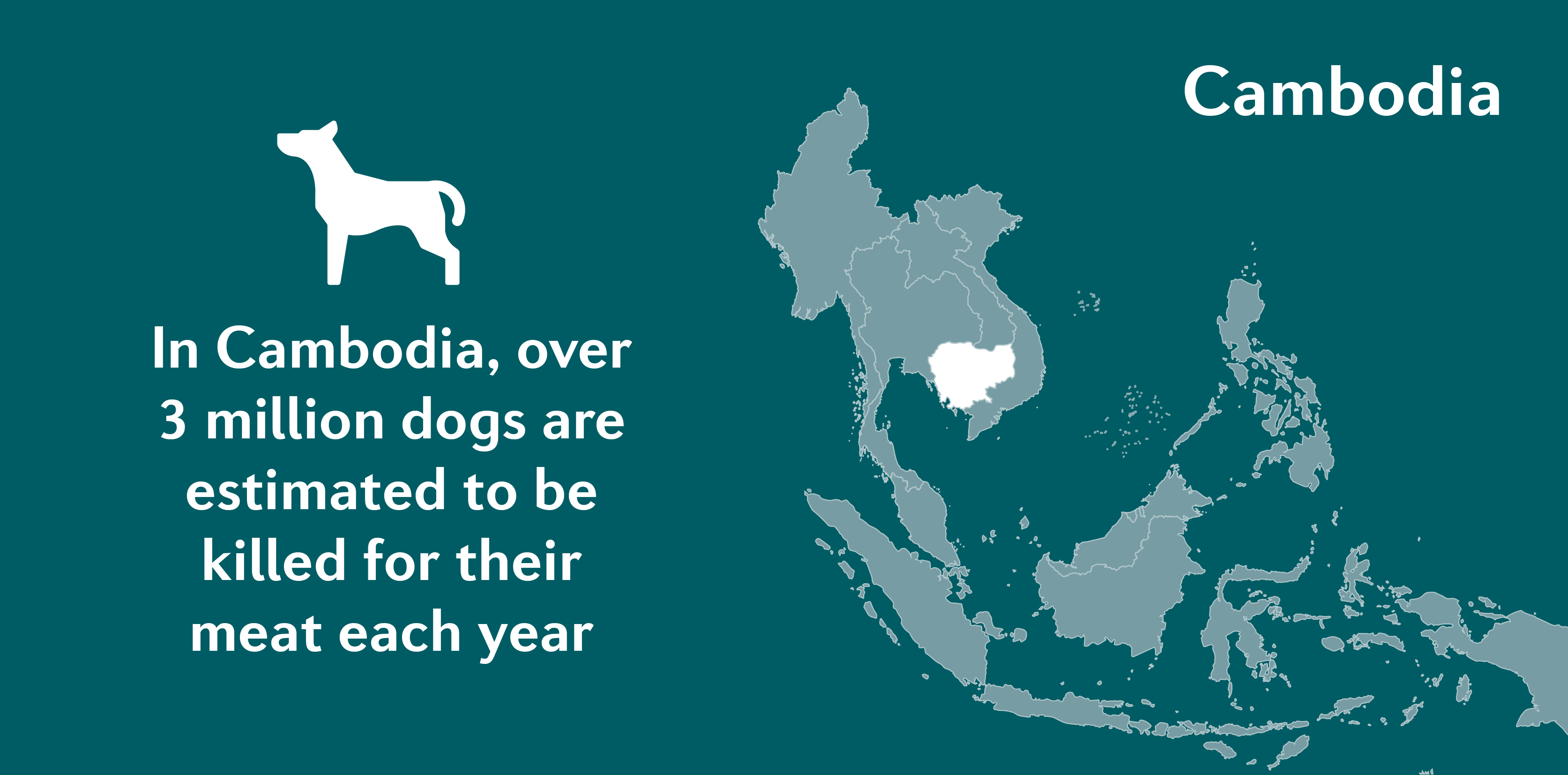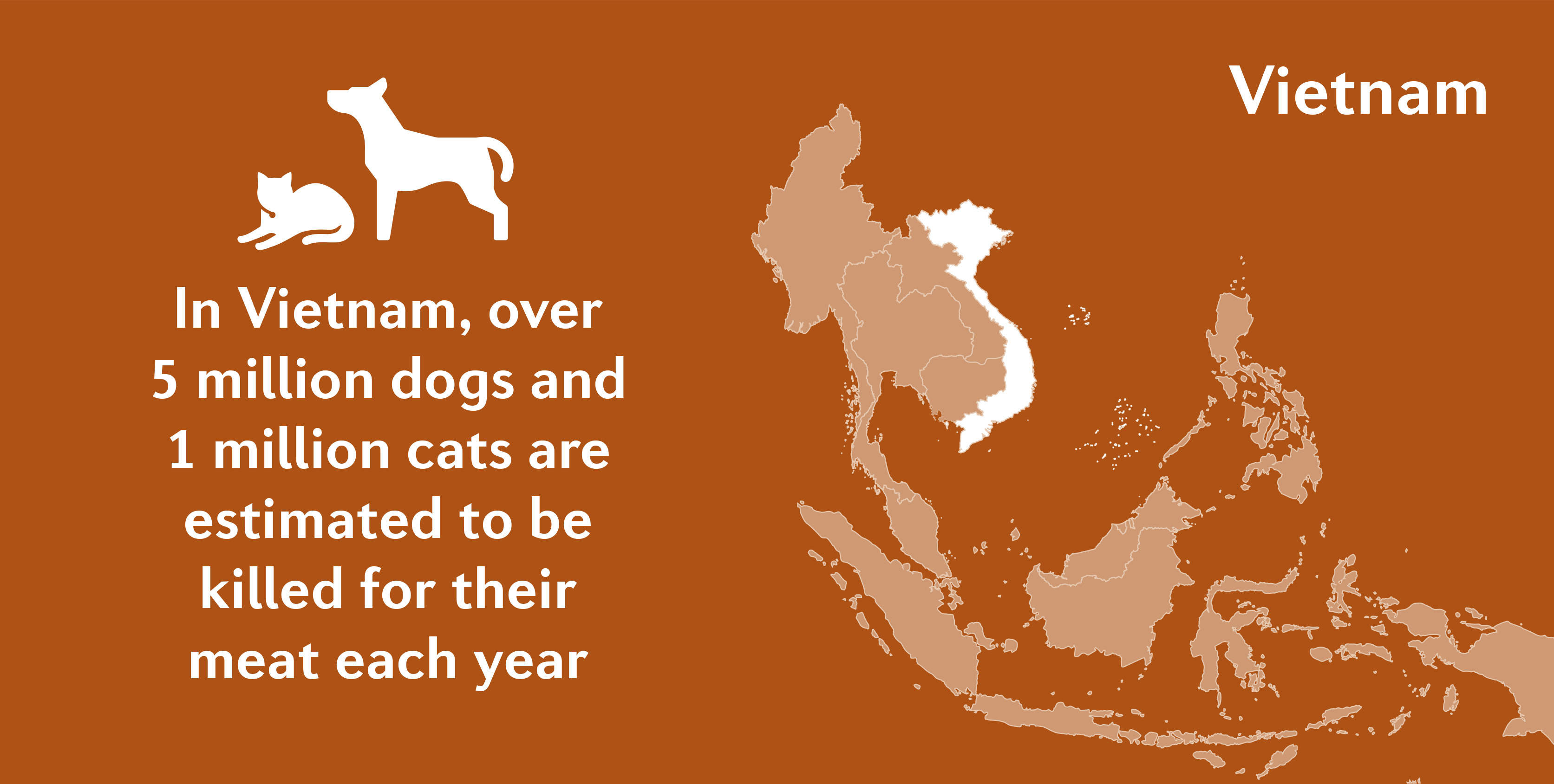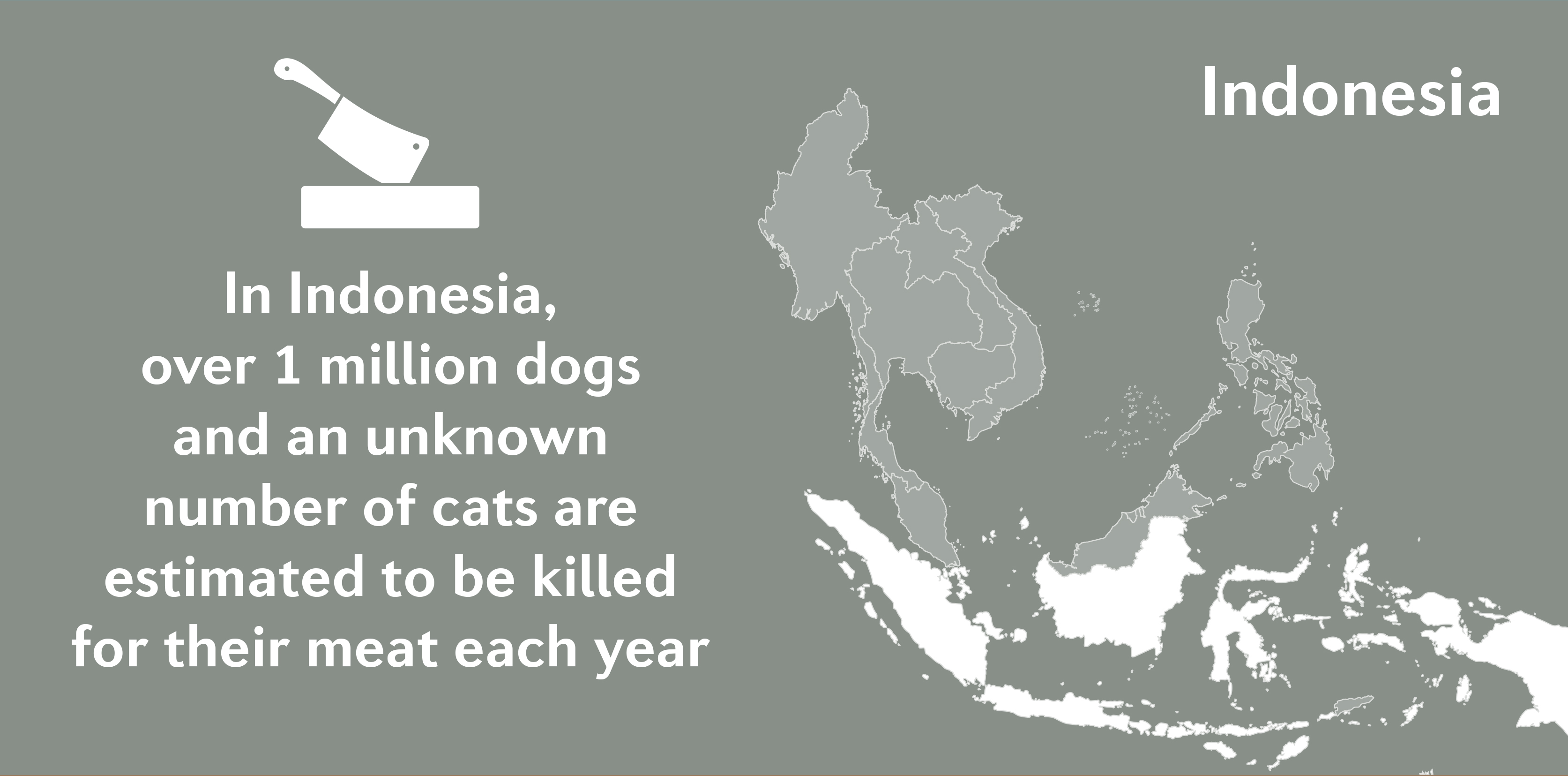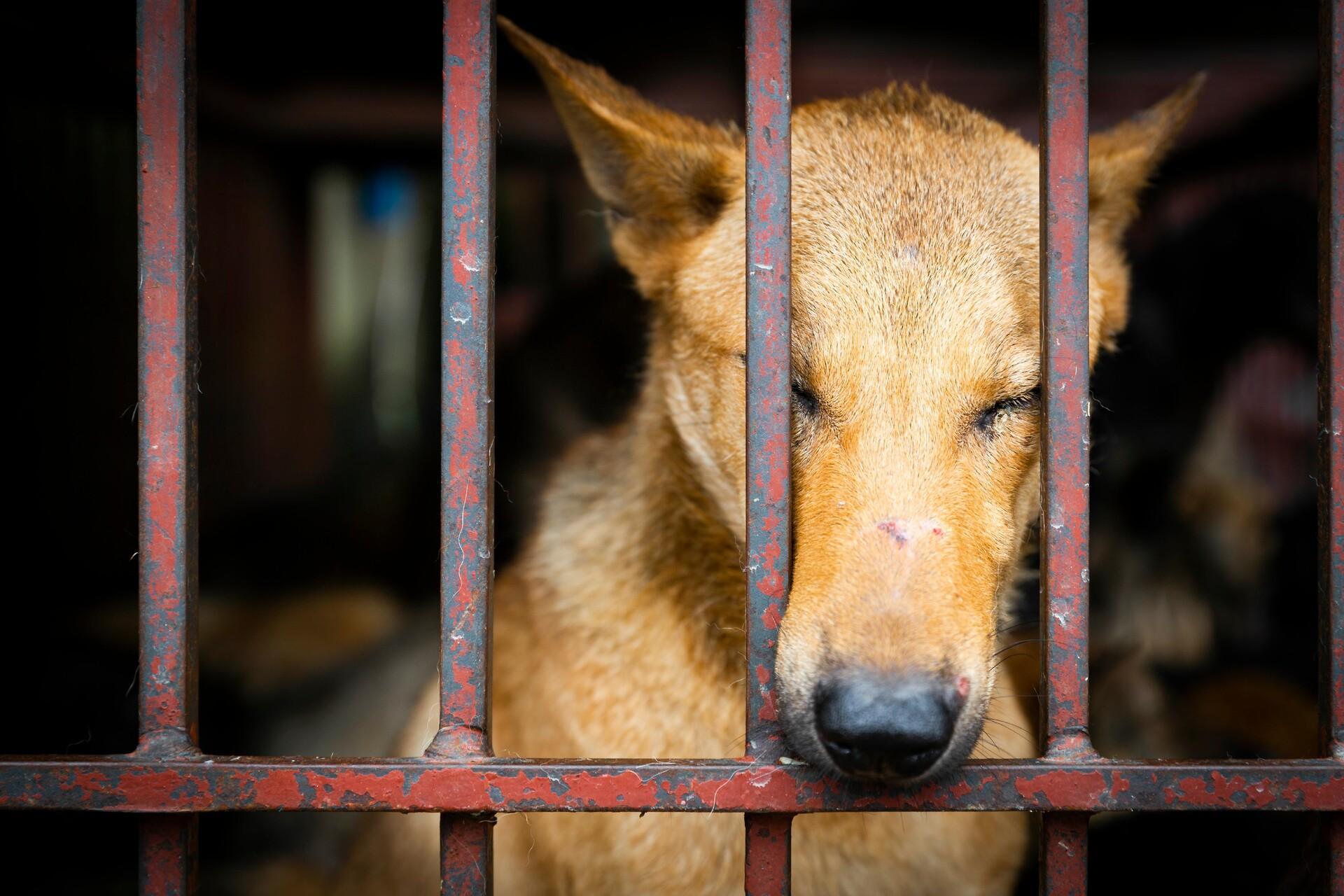
Where the Cruelty Happens
FOUR PAWS is working to end the dog and cat meat trade in several countries in Southeast Asia
Over the past several years, FOUR PAWS has expanded its reach into Southeast Asia, which now gives us the opportunity to take up the fight against the horrendous dog and cat meat trade. Alongside our network of local charity partners in the region, we have the chance to make a change for the animals, to stop the brutal dog and cat meat trade in Cambodia, Vietnam and Indonesia.
Here is an overview of the individual countries' situation regarding dog and cat meat.
Cambodia

Despite it taking the lives of up to 3 million dogs annually, the dog meat trade in Cambodia has received little attention in recent years compared with neighbouring Vietnam. Dog meat in Cambodia is referred to as ‘special meat’ and is often consumed with beer or rice wine on social occasions. Motivations for dog meat consumption vary – besides consumption of dog and cat meat on social occasions, many believe that dog meat has medicinal properties, from boosting virility to keeping the body warm during Cambodia’s ‘colder’ months. According to a market research study conducted by FOUR PAWS, overall a shocking 53.6% of respondents indicated that they have eaten dog meat at some time in their lives (72.4% of males and 34.8% of females). In the capital city of Phnom Penh, FOUR PAWS investigators have visited a total of 110 dog meat restaurants, most of which had started up within the last two years, as the trade continues to grow.
FOUR PAWS runs a Saving Pagoda Animals program with the local charity Animal Rescue Cambodia. This programme focuses on helping animals in pagodas (temples) in and around the capital of Phnom Penh. Buddhist pagodas are commonly the dumping ground for unwanted animals with many having abandoned dogs and cats living on site. FOUR PAWS and Animal Rescue Cambodia help the pagoda animals by providing food, veterinary care and educating the monks and their staff on how to take care of the animals. Unfortunately, pagodas are also the hunting ground for dog and cat thieves who steal animals living on the grounds of the pagodas for the dog and cat meat trade.
Vietnam

In areas of Vietnam where cat meat consumption is prevalent, diners report that they most commonly eat it at the lunar month for good luck. In Vietnam, dog meat has been linked to regional outbreaks of trichinosis, cholera and rabies in humans. While the dog meat trade is often defended as ‘tradition’, the reality is that there are significant health and societal impacts associated with the trade and these are becoming of ever-growing concern within Vietnam and internationally.
In Vietnam, you can avoid dog and cat meat by looking out on the menus for items referred to as “thịt chó”, “thịt mèo” or “thit cay” (cat meat). "Chó hấp” (steamed dog meat), “rựa mận” (dog meat with galangal, shrimp sauce, fermented rice), and “chó nướng” (baked dog meat).
Indonesia

Although dog meat is only consumed by a minority of Indonesians – estimated at less than 7% nationwide and < 1% in Jakarta – and only a tiny fraction of society is reliant on it as a primary source of income, the trade threatens the health and safety of the entire nation. Indonesia has been making great strides to ban the dog meat trade; over 25 regencies and cities have banned the trade, including the capital city Jakarta.
In Indonesia, you can avoid dog meat by looking out on the menus for items referred to as “B2” or “RW”.

